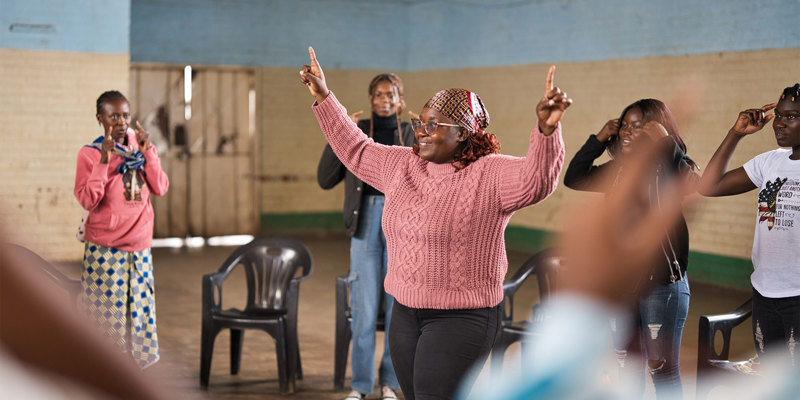Global Fund Sees End to Paternalism
11 December 2013
CAPE TOWN, South Africa –Mark Dybul, Executive Director of the Global Fund, said the paternalism overshadowing relations between rich countries and poor in global health is giving way to an era of partnership that owes much to the vision of Nelson Mandela.
In a closing speech at the 17th International Conference on AIDS and sexually transmitted diseases in Africa (ICASA), Dr. Dybul paid a rousing tribute to the late South African leader, saying Mandela “broke the silence on HIV in Africa and he broke the silence on HIV in the world.”
“This week, let us finally end the paternalism in the world,” said Dr. Dybul.
Instead, he urged everyone to embrace Mandela’s vision for a world where every human being was a master of his or her destiny. A meeting of the International AIDS Society in Durban in 2000, which Mandela addressed, was widely seen as a turning point in the fight for wide access to treatment for HIV and opened the way to the creation of the Global Fund two years later.
The theme of the ICASA conference in Cape Town was entitled “Now More Than Ever: Targeting Zero,” underscoring a mood of growing optimism that the HIV pandemic can be turned into a low-level endemic that no longer poses a public health risk.
Dr. Dybul also called for the next ICASA meeting to add tuberculosis -- the leading cause of death among those with HIV -- to its name so that the disease “receives the emphasis it deserves.”
“HIV and TB are like two evil twins and we have the power and the responsibility to release them and we have the power and the responsibility to defeat them,” he said.
The time was long gone for “people from somewhere else” to tell countries in Africa how to tackle the AIDS, tuberculosis and malaria. “Your results have shattered the paternalistic myths of what should and can be done,” Dr. Dybul said.
Earlier in the day, Edwin Cameron, who serves as a justice on South Africa’s constitutional court, said stigma was one of the biggest obstacles to defeating the HIV pandemic.
“Stigma remains the most intractably resistant force in the epidemic,” Justice Cameron said. “It spreads blame, fear, inhibition, inaction and silence.”
Justice Cameron, who became the first senior official in South Africa to state in public that he was living with HIV, said men who have sex with men were shamefully treated in Africa: “Thirty-eight countries in Africa still persecute those who, like me, are oriented towards our same sex.”
The chair of the ICASA conference, Robert Soudré, said African countries could not continue to rely indefinitely on external support for HIV treatment.
“More than 80 percent of medicines are financed from external sources and that cannot continue,” said Soudré. “Our countries will have to make available their own resources and governments will have to rely above all on themselves.”
He added: “Zero stigma is what we should aim to achieve everywhere in the world, but also on our African continent.”
Dr. Dybul said although there was no single “silver bullet” that could end the HIV pandemic it was essential to deal with strongholds of infection among young women and girls; men who have sex with men; sex workers; people who inject drugs and prisoners.
“If we are going to address this epidemic we must deal with the strongholds. We must have our tools available for the most vulnerable and that means creating an inclusive human family,” he said.
“Let’s end silver bullet approaches to this epidemic and let’s just end the epidemic.”







